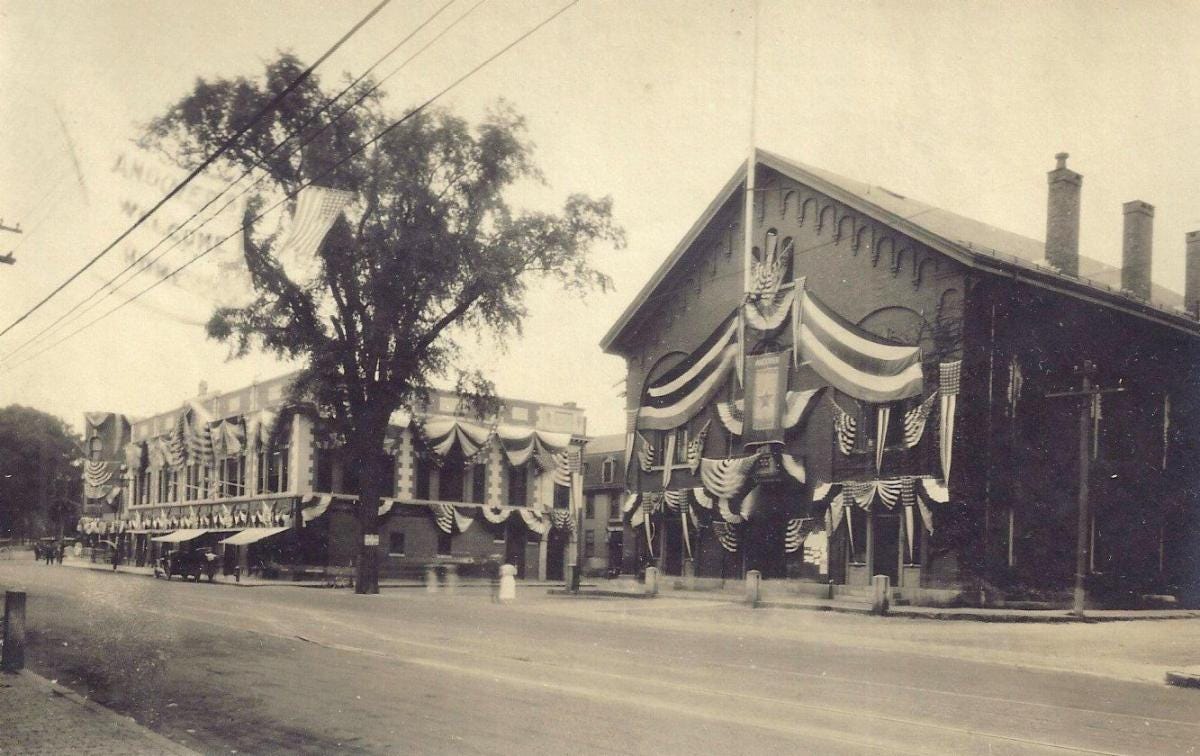History isn’t easy.
In the words of the French historian Fustel De Coulanges (d.1894), “History is no easy science, its subject; human society, is infinitely complex.”
As a historian, I was excited about the recent discovery of an 1876 letter written by abolitionist Frederick Douglass about the Emancipation memorial in Washington, DC, in which he wrote,“no one monument could be made to tell the whole truth."
You can read about Douglass' letter in this Smithsonian Magazine article. You can read about the City of Boston Art Commission's recent vote to remove a duplicate monument from the city’s Park Square.
Over the July 4th weekend, I thought I would share the Smithsonian article along with a story about Frederick Douglass speaking at the Andover Town House in October 1865.
Four months after the assassination of President Abraham Lincoln, Douglass spoke in Andover on “The Assassination and Its Lessons.”
Then I was dismayed to learn that on July 5th a statue of Frederick Douglass in Rochester, NY, had been vandalized. Douglass was buried in Rochester in 1895. In 2018, the city of Rochester installed the statue of Douglass to commemorate the 200th anniversary of his birth.
The statue of Douglass was torn down on the 168th anniversary of one of his most famous speeches, “What to the Slave Is the Fourth of July?”
On July 5, 1852, Douglass delivered his speech to the Rochester Ladies' Anti-Slavery Sewing Society:
"Are the great principles of political freedom and natural justice, embodied in that Declaration of Independence, extended to us?….I am not included within the pale of this glorious anniversary!...Your high independence only reveals the immeasurable distance between us."
Wading into the conversation about monuments and memorials is not for the faint of heart, but I believe it is important to take time to reflect on the meaning of monuments and memorials. With that in mind, I’d like to share a few resources from the American Association for State and Local History (AASLH) Book Series. AASLH is a professional organization for history practitioners who work in history museums and public history. Their Resources page includes links to many AASLH publications, including these.
Monument Culture: International Perspectives on the Future of Monuments in a Changing World, Edited by Laura A. Macaluso
Controversial Monuments and Memorials: A Guide for Community Leaders, Edited by David B. Allison
Why Old Places Matter: How Historic Places Affect Our Identity and Well-Being, by Thompson M. Mayes
Yours,
Elaine Clements
Executive Director, Andover Center for History & Culture
eclements@andoverhistoryandculture.org
We at the Andover Center for History and Culture affirm that Black Lives Matter.
We acknowledge that the study of history has not equitably collected, preserved, or shared the stories of people of color and other marginalized populations.
We commit to work hard to do better for our community, to collect and share the stories of all people in Andover, because sharing our stories helps build stronger, engaged communities. Our stories help us know each other.
We acknowledge that we have work to do. We will continue to serve our mission to seek out and share the stories of Andover residents whose lives were undocumented, untold, or erased.






